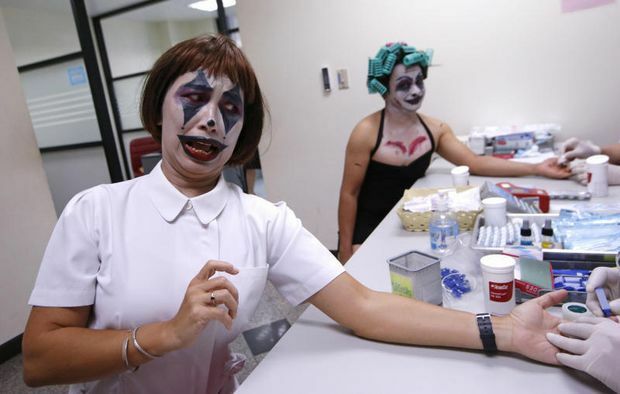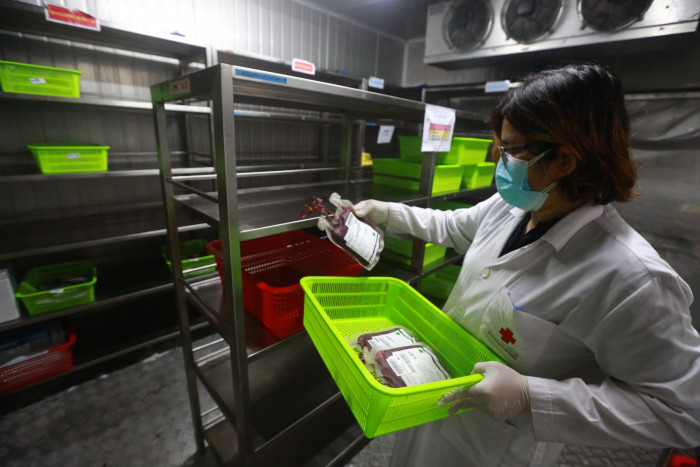Reserves of Rh-negative blood in Thailand critically low
If foreigners want blood when they need it, they must donate when they don't

Reserves of Rh-negative blood in Thailand are critically low, a challenge that can only be met with the help of the international community.
Like most Asian nations, Thailand has a very low prevalence of Rh-negative blood, with some suggesting as few as three in every 1,000 Thais have this blood type, compared to around 15% of Westerners. There are only around 20,000 people in Thailand with this rare blood group.
| O | A | B | AB | Total | |
| +ve | 40.8% | 16.9% | 36.8% | 5% | 100% |
| -v | 0.20% | 0.10% | 0.20% | 0.03% | 0.5% |
| +ve | 28,100,000 | 11,600,000 | 25,300,000 | 3,400,000 | 68,600,000 |
| -v | 140,000 | 69,000 | 138,000 | 21,000 | 370,000 |
Reserves of Rh-negative blood in Thailand are critically low

Issarang Nuchprayoon, adviser to the Thai Red Cross national blood centre, said…
“The disparity in numbers may provide challenges for treating Western tourists with this blood type. In emergencies that require blood transfusions, a scarcity of Rh-negative type blood pool may cause assistance to be delayed.”
With Rh-negative blood from Thai donors alone not being enough to support the needs of foreign visitors, Issarang is encouraging the Western community with this blood type to donate regularly.
Dr Issarang was addressing at a Foreign Correspondents’ Club of Thailand (FCCT) Wednesday during a talk entitled Death Without Donors: Rh-negative blood rarity in Thailand.
Michael Landess, a former ICU nurse told the club that to increase Rh-negative blood reserves in Thailand, the country must increase the number of donors. One solution would be to eliminate the long-standing tests for CJD (mad cow disease) for donors from the United Kingdom, Ireland and France, which are an impediment to participation by overseas residents and a conspicuous waste of time and money.
Rh-negative blood reserves in Thailand are critically low

Increasing blood reserves is the ultimate solution to saving more lives. Landess said…
“Right now, we can only help those in the ‘intermediate trauma’ stage who have injuries but can still live for a while without a blood transfusion. It could take one or two days from the time an injury occurs to the time blood is sourced from donors and transported to a hospital.”
Issarang said all current publicity material used to recruit blood donors is published in Thai and only communicated to Thai people.
Issarang said…
“But now we see an opportunity to get more blood from Western visitors.”

Latest Thailand News
Follow The Thaiger on Google News:


























